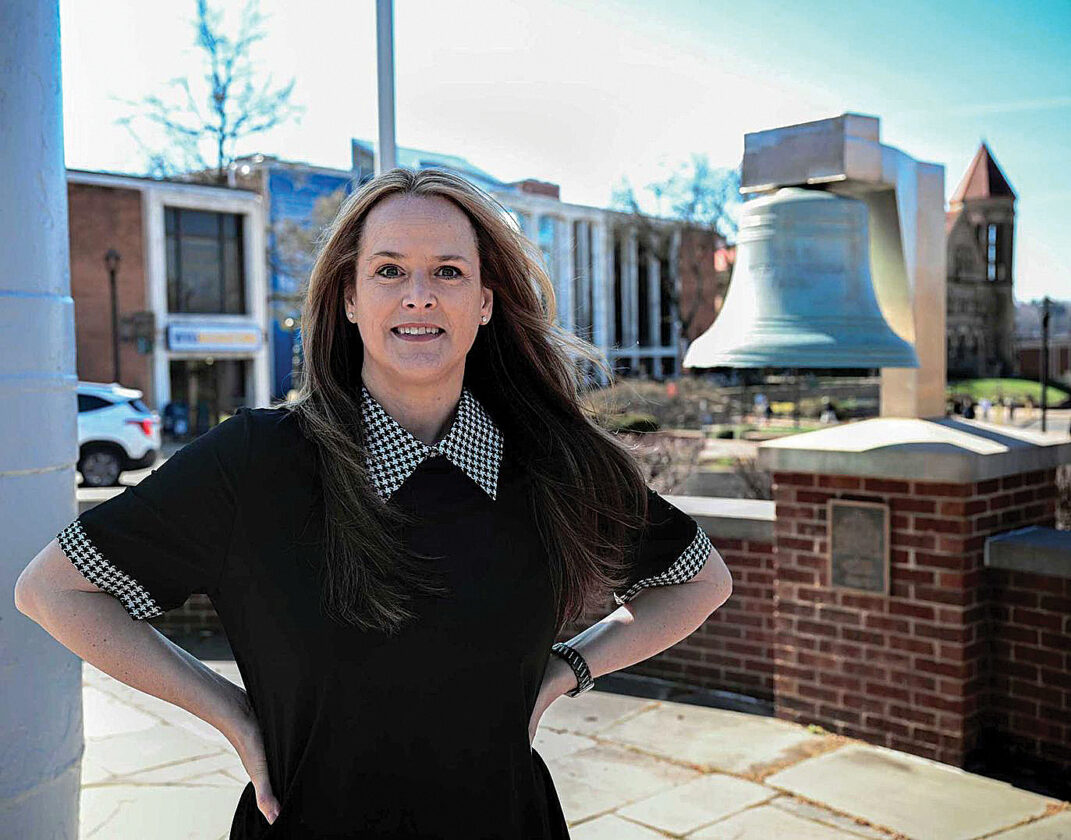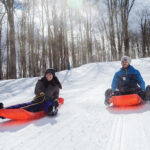Center committed to community

WVU photo Kristi Wood-Turner is the West Virginia University assistant dean for the Division for Land-Grant Engagement and director of the Center for Community Engagement.
MORGANTOWN — Omar Ibraheem was in a Wise Library cubicle doing last-minute cramming for a biology final during his freshman year at WVU. Like lots of students, he’d put that off until the last minute and he didn’t want any interruptions. But a notice that appeared on his computer screen about a job opening at the Center for Community Engagement caught his eye and he clicked.
The job was for Purpose2Action, a paid community engagement experience that directly involves students and he thought it might be too good to be true. Ibraheem was thrilled that a job could line up so perfectly with the precepts of his Muslim faith — to understand the blessings given and share those with the people who have not been so blessed. He applied in a rush, got the job and has been part of the CCE ever since.
His enthusiasm for his work is infectious.
Ibraheem was already familiar with the Center and its work because of his involvement with the Muslim Student Association, which he served as president of that semester.
“We were heavily involved in many volunteering activities that serve the community, especially when it came to meal packing events and similar activities,” he said.
He rushed the application at the last second, but he heard back from them immediately. Ibraheem took the job, and said he fell in love with the program because the whole idea of it was helping students financially while also using their work to help the community.
Ibraheem, a Morgantown native, graduated this spring and spent the entirety of his undergraduate career working with the Center for Community Engagement. And in spite of his heavy class load, he said the flexible work experience was an added benefit; it wasn’t just a line on his School of Dentistry application, but an experience that gave him an opportunity to engage with the community in a way that broadened his perspective and the ability to see the fruits of his work.
He worked with PACE Enterprises, a company that hires people with physical and mental disabilities for jobs that include shredding documents in bulk and janitorial and grounds services, as well as job training and coaching.
“I was able to work with people with disabilities — client-by-client work finding a job that was suitable for their skills and would allow them to be more independent. It was eye-opening,” he said.
Kristi Wood-Turner is the assistant dean for the Division for Land-Grant Engagement and the director of the Center for Community Engagement. Although not always in a classroom or a lab, she considers herself and her staff teachers who offer a valuable educational component to students like Ibraheem — experience.
“We are able to integrate classroom learning with meaningful community experiences, ensuring that every student has the opportunity to apply their academic knowledge in practical, community-based settings,” Wood-Turner said. “I can tie classroom work to something that is a real, valuable job. Our dedicated and passionate staff are integral to driving WVU’s mission forward, consistently enriching our community and empowering students to succeed.”
Toward that end, the Center staff tries to make sure they are where students, faculty and community partners need them to be, offering connections to local nonprofit organizations and agencies that can use the helping hands, innovative ideas and direct support in a variety of areas.
iServe at WVU is the hub of activity for student volunteer work, and Wood-Turner said the site is a two-way street for both students and community organizations. Organizations, like the Monongalia County Child Advocacy Center, can post job openings and students can apply to fill them. The database is available for all WVU students, faculty, staff and community partners.
“It becomes something they choose, so that they can have the experience instead of just something they had to do,” Wood-Turner said. “We want them to build on the knowledge they already have and continue building on through community service.”
Since 2016, WVU has been designated as an R1 institution, meaning it’s ranked as one of the top research universities in the country. A lesser-known fact is that WVU is also a Carnegie Community Engagement University, one of the first 100 higher education institutions to attain that ranking in 2010, and then was reaccredited in 2020. Wood-Turner said attaining that classification means the Center and the University have committed to forming partnerships in the community and the exchange of knowledge and resources is mutually beneficial.
More than 10 WVU students work at the Monongalia County Child Advocate Center. Seven of those — five undergraduates and two graduate students — are clinical interns and two students work on development and public relations with Taylor Shultz, the MCCAC director of awareness and development. Shultz is in weekly communication with the Center and attends monthly meetings to keep both entities up to date. Her interns spent a busy winter and early spring preparing for the celebration of MCCAC’s 20th anniversary and Build the Bounce campaign.
The organization serves children who have been victims of abuse. Trained forensic interviewers speak with children on camera while the remainder of the investigative team watches the interview, which is recorded, and can be used in the investigative process; the child tells the story only once. The interviewing process ends with a mental health screening, ensuring the child is in a good place when they are leaving the center.
Everyone leaves feeling supported with the help of their family advocate.
It’s the biggest service MCCAC provides, and the children it serves also can receive evidence-based and trauma-informed therapy. Those clients come first, but MCCAC will also take referrals from the community or the school system if there’s an opening. The team can help parents and families who struggle with substance use disorders or domestic violence.
Shultz said MCCAC gives students a good opportunity to get some real-world experience, and the students help the small staff with scoring and entering assessments/administrative tasks, providing therapy, community outreach, and fundraisers, depending on the students’ majors.
In 2024, MCCAC conducted 223 forensic interviews and 953 therapy sessions, as well as 5,326 advocacy services.
In addition to serving 945 clients, the staff provided education to 1,476 community members.


